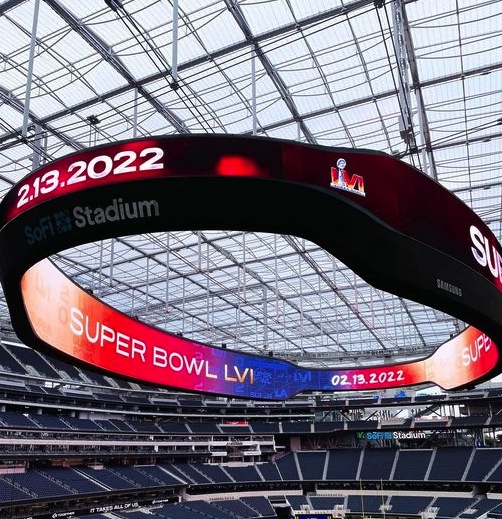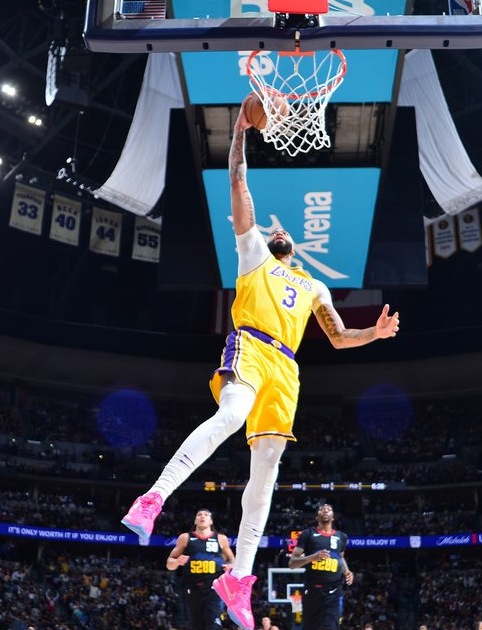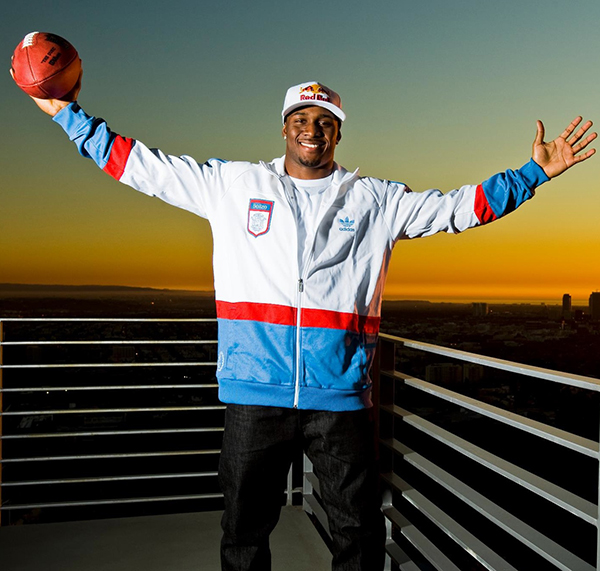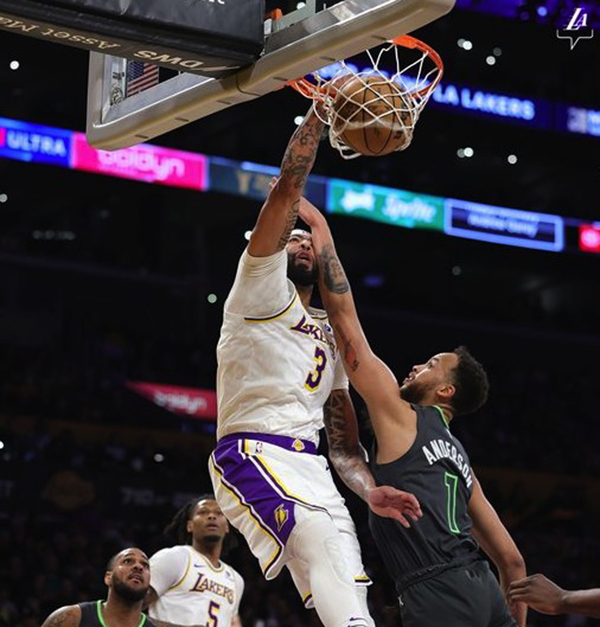Wave Wire Service
INGLEWOOD — SoFi Stadium will become the first stadium to host an NFL conference championship game and a Super Bowl in the same season after the Rams punched their ticket to the NFC championship game with a dramatic 30-27 victory over the Tampa Bay Buccaneers Jan. 23 in Tampa, Florida.
The NFC title game was played Jan. 30, with the Super Bowl following two weeks later on Feb. 13, with kickoff also slated for 3:30 p.m.
The Rams will host the Cincinnati Bengals in the big game.
“We have been continually adjusting schedules and coordinating on a daily, even hourly basis, as the [Rams] advanced in the payoffs,” Katie Keenan, the NFL’s senior director of live event operations told The Athletic. “Now we are consolidating our schedules, adding crews and working with the Rams to make sure we are ready for Super Bowl Sunday.
Typically, the NFL moves into the stadium five days before the Super Bowl, but the NFL has been at work at SoFi for a couple of weeks, erecting several large tents in the parking lot and adding a sign that says Super Bowl LVI in the lake just outside the stadium, according to The Athletic.
But other additions designed for the Super Bowl will have to wait until after the Rams-49ers game.
“We don’t want the stadium to feel like the Super Bowl yet,” Keenan told The Athletic. “This is a Rams’ home game.
The biggest impact fans attending the Rams-49ers game Jan. 30 will be a 30% reduction in parking capacity.
SoFi Stadium officially opened on Sept. 13, 2020, when the Rams hosted the Dallas Cowboys, but no fans were in attendance due to restrictions caused by the coronavirus pandemic.
Also the home of the NFL’s Los Angeles Chargers, the stadium is the most expensive ever built at an estimated cost of about $5.5 billion. It was built on the site of the former Hollywood Park racetrack, and sits adjacent to the Forum.
There was some speculation earlier this month that the league might pull the Super Bowl out of Los Angeles due to the local surge in COVID-19 cases driven by the Omicron variant, but officials confirmed on Jan. 6 that the game would go ahead as planned.
County Supervisor Holly Mitchell told reporters there was no logic in moving the game.
“This is an international pandemic. I’m not sure why it would make more sense to have it in Texas,” she said.
But Mitchell said holding the event safety will be dependent on the people attending it.
“My plea is to all of those — local and those who will travel to Inglewood to SoFi Stadium for the Super Bowl — that you follow our health orders and that you mask,” she said. “I would encourage people to get vaccinated and boosted before you come.
“We shouldn’t assume that individual decisions don’t have the greatest impact in the spread of this virus,” she said. “It’s up to the individual to choose to stay masked through the entire game to keep themselves safe and everyone else.”
The county announced Jan. 25 that every person attending the Super Bowl will be given a KN95 mask and will receive repeated reminders about the requirement that masks be worn throughout the event, except while eating or drinking.
“For the past three months, [Department of Public Health] staff have been working closely with the NFL and SoFi Stadium to plan for an exciting and safe Super Bowl experience in L.A. for fans, residents and workers,” county Public Health Director Barbara Ferrer told the Board of Supervisors. “There’s been an extraordinary level of cooperation focused on a shared commitment to compliance with public health safety measures at all NFL-sponsored events.”
The last time the Super Bowl was played in the Los Angeles area was 1993, when the Dallas Cowboys beat the Buffalo Bills at the Rose Bowl. The 2003 Super Bowl was played at Qualcomm Stadium in San Diego.
Super Bowl LVI could deliver as much as $477.5 million to the Los Angeles economy, including thousands of new job opportunities in the event-production and hospitality sector, plus major contracts for local businesses, according to projections released in October.
“This is going to be such an incredible infusion for our local businesses,” Adam Burke, president and CEO of the Los Angeles Tourism & Convention Board, said on Jan. 13. “You go back to 2019, tourism has become one of the biggest drivers of our local economy, with over 544,000 Angelenos employed in tourism-related careers, and believe it or not, in 2019 visitors generated $38 billion for our local businesses.”












